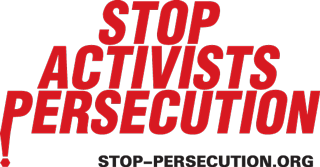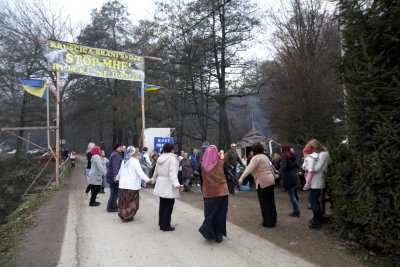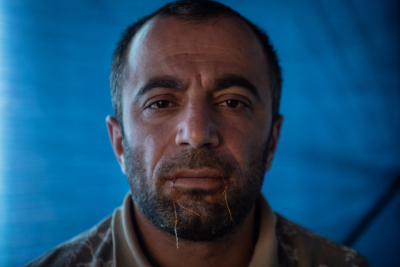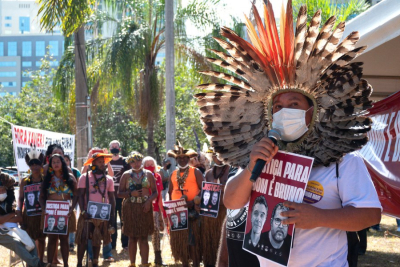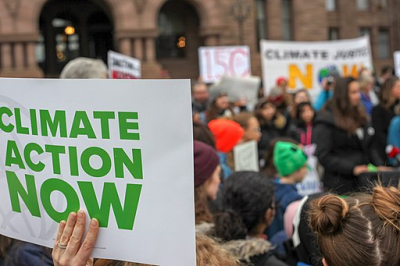A recent special forces raid got out of hand and attracted more attention than its planners intended
“The hydropower plant boom” is a serious issue all over the Balkans. A horrifying number of local mountain rivers are being dammed by private investors blinded by greed. This foolish approach results in irreversible environmental changes that destroy these clear streams. No wonder loud resistance has risen from local communities in order to save Europe's last wild rivers. But no one ne was repressed in a heavy-handed way, like the one on the Kruscica.
The bridge was occupied by unidentified residents of the village of Kruscica at five o'clock in the morning. Out of 40 protesters, the vast majority were women, and at the moment of the unexpected visit, they were already alert and ready, sitting on the bridge over the river. Their plan was to remain seated. No defiance, zero provocation, only peaceful protest, and guarding the natural heritage. Ten minutes later, everything had gone wrong.
"They came at us with determination and rage ..."
Seeing no other way of fulfilling their task, the men, laden with shields and batons, decided to open access to the riverbed by any means necessary. Regardless of their overbearing strength and numbers, they started dragging women away from the protesters, insulting them using sexually-loaded language, tearing their clothes or traditional headscarves, and even physically injuring more than half of the women who were not resisting them.
When facing the crude police, there was surely an easy and obvious way to save themselves from unnecessary abusive behavior and beating. So why didn't the women just walk away?
The police were not alone
The reason why the women refused to the police orders, step aside, and the clear passage was much more intriguing and, at the same time, far more disturbing than one might expect. Right on the tail of the police vehicles, several trucks and excavators were lined up, waiting for the "custodians of the law" to do their dirty work.
“The purpose of the police units is to protect people from crime.
Instead, they often protect the criminals and cash in."
About 30 protesters were rounded up and taken to the Vitez police station for questioning, which lasted seven hours. After being released, the women, accompanied by two men, had to seek medical help, only to be taken away from the nearest hospital without any explanation, and having to travel to the neighboring town of Travnik.
But not everything went perfectly there either. “At the Travnik Hospital, we were taken care of,” one of the injured women stated. “Nevertheless, when asked for medical service, they refused to provide it. Of course, we were prepared to pay 50 BAM. I really don't know what to think,” she said, referring to the power of money, or possibly fear.
The investigation into the violence in progress
The police basically denied all the allegations. They named the intervention and the "previously prepared plan," accused the villagers of illegally blockading the public road and denying passage to all traffic. They then stated that officers handled "the protesters without any force," and that “no people were injured during the aforementioned police activities.”
Without a doubt, early that morning, a number of civil rights were violated, especially those under the European Convention on Human Rights and the Aarhus Convention. The Institution of Human Rights Ombudsman of Bosnia and Herzegovina has opened an ex officio investigation. On top of that, the case was directed to the relevant EU, UN, and OSCE non-governmental organizations, Arnika and Center for Environment.
"We would like to watch the described case of violence and
help enforce the principles embedded in international conventions."
The result is the following: the construction of the hydropower plant on the Kruscica River, the shelf, and the sea, and the people arriving at the construction site to demonstrate-- now not only against the exploitation of the environment, but also for human and civic rights against police brutality.
The future will be the end of the story of Kruscica, in which both nature and people get hurt and suffer.
Here are some photos from the protest on the Kruscica River.
Sources:
ENG The river: reportage photography (Arnika)
ENG Kruscica: What's going on there (Arnika)
ENG 18/12/2018 Kruscica celebrates! The cantonal court is a permission for two planned hydropower plants (Arnika)
ENG 19/06/2018 Small victory of the Balkan village: hydro-power plants permit canceled (Arnika)
ENG 24/08/2017 Riot police forcibly remove residents defending river against hydropower (Arnika)
ENG 25.08.2017 Ombudspersons Opened an ex officio Investigation (Ombudsmen of B & H)
BOS 08.25.2017 Ombudspersons Opened an ex officio Investigation (Ombudsmen of B & H)
BOS 25/08/2017 Access to the public road near Kruscica (Ministry of Inferior SBK / KSB)
ENG 31/08/2017 Open Letter to EU, OSCE and UN Representatives on Police Violence in Kruscica (Arnika)
ENG 31/08/2017 The police violence in Kruscica investigated by the ombudsmen of Bosnia and Herzegovina (Arnika)

